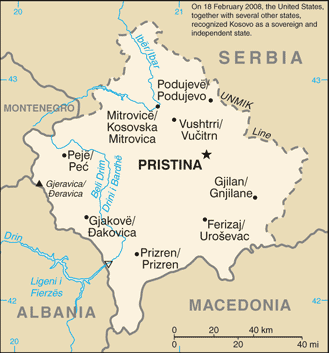Serbian officials are expressing quiet optimism that the International Court of Justice will rule in their favor with respect to the 2008 secession of Kosovo. The Serbian government has refused to recognize Kosovo independence.
 Kosovo has been outside of Serbian control since 1999, and a NATO occupation force was deployed which continues to remain in the country, though the reason for this presence is increasingly nebulous. The United States and much of Western Europe have recognized Kosovo as independent, while Serbia and Russia, among others, have not.
Kosovo has been outside of Serbian control since 1999, and a NATO occupation force was deployed which continues to remain in the country, though the reason for this presence is increasingly nebulous. The United States and much of Western Europe have recognized Kosovo as independent, while Serbia and Russia, among others, have not.
Though the ruling will be only be a legal opinion and will not be binding on Kosovo or Serbia, the ramifications of the opinion could reach far beyond this single secessionist movement and toward others the world over.
A ruling in favor of the Kosovar secession could, for instance, put serious pressure on the West to recognize the declarations of independence of South Ossetia and Abkhazia, two republics which Western nations continue to maintain are part of Georgia. It could also boost potential secessionist movements, including one in Kosovo itself, as a district of ethnic Serbs has sought independence from the NATO-dominated Kosovo government.


